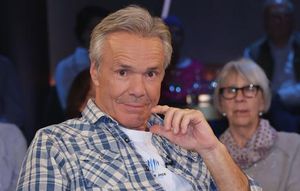Recent tensions surrounding the Israeli-Palestinian conflict have intensified scrutiny of Hollywood actress Gal Gadot, particularly in light of her outspoken views amid a divided film industry.
The release of Disney’s live-action remake of Snow White on March 22, 2025, was marred by controversy, with the film grossing only $43 million against a staggering $250 million budget. Before the film premiered, star Rachel Zegler ignited backlash by tweeting, “and always remember, free palestine,” a sentiment that did not sit well with her co-star Gadot. Tensions between the two actresses reportedly stem from their differing political views regarding the Israeli-Palestinian conflict.
Gadot, born in Petah Tikvah and raised in Rosh Haayin, has a long-standing connection to Israel, with roots on both sides of her family tracing back generations. A former Miss Israel in 2004, Gadot is noted for her service as a combat instructor in the Israel Defense Forces (IDF), training soldiers in fitness as part of her conscription. Reflecting on her military experience, she stated, “The army wasn’t that difficult for me,” and praised her service as providing “good training for Hollywood.” Her remarks have drawn ire from some, with activists threatening boycotts against her films due to her IDF background.
While Gadot has typically refrained from expressing overt political views, a few key moments have marked her public statements regarding Israel. In 2018, she openly opposed Israeli President Benjamin Netanyahu’s comments about the nation-state law, tweeting support for Israel’s Arab minority. “Love thy neighbor,” she urged, citing the need for dialogue to achieve peace. During the 2021 Israel-Hamas war, Gadot reflected on the need for understanding and compassion, posting, “My heart breaks” for both sides, though her wording drew criticism from pro-Palestinian activists who felt she was not accurately addressing the plight of Palestinians.
In the wake of the shocking Hamas-led attacks on Israel on October 7, 2024, Gadot expressed solidarity with Israel, sharing an image of a Star of David accompanied by the words, “I stand with Israel you should too. The world cannot sit on the fence when these horrific acts of terror are happening!” Five days later, she walked a delicate line by stating that “killing innocent Palestinians is horrific. Killing innocent Israelis is horrific,” a sentiment that stirred backlash from some in her homeland who regarded it as overly critical.
Gadot’s focus has recently shifted toward advocating for Israeli hostages. She has shared the names of over 80 individuals believed to be held captive and has utilized social media to spread awareness of their situation. “I felt like I had to advocate for the hostages,” Gadot told Variety. “I want everybody to have good life and prosperity, and the ability to raise their children in a safe environment.” Despite her vocal advocacy, she has faced criticisms for remaining silent about the humanitarian crisis in Gaza.
Gadot has continued to address rising global antisemitism, particularly following the events of October 7. During her speech at an Anti-Defamation League conference titled “Never Again is Now,” she stated, “None of us can ignore the explosion of Jew-hatred around the world anymore,” expressing concern over the perceived lack of support for Jewish women in the wake of violent attacks against them.
Just two weeks after her ADL address, Gadot received a Hollywood Walk of Fame star. She spoke of her journey from her Israeli roots to the Hollywood spotlight, joyfully stating, “I’m just a girl from a small town in Israel, and I could never imagine such a moment.” However, including this celebratory acknowledgment amid rising tensions around the Israeli-Palestinian conflict has provoked mixed reactions among fans and commentators.
Throughout this tumultuous period, Gadot's identity as an Israeli has remained firmly intertwined with her public persona. Her parents, Irit and Michael Gadot, are native-born Israeli Jews, or sabras, and have raised their daughter with a strong connection to her cultural identity. She has often referred to her mother as her “personal Wonder Woman,” highlighting the familial support that has shaped her journey.
Despite the pressure and backlash from both sides of the political divide, Gadot has asserted her commitment to voicing her beliefs while staying true to her origins. Amid the ongoing conflict and its ramifications in Hollywood, she continues to navigate a complex landscape where art, politics, and personal identity converge.





